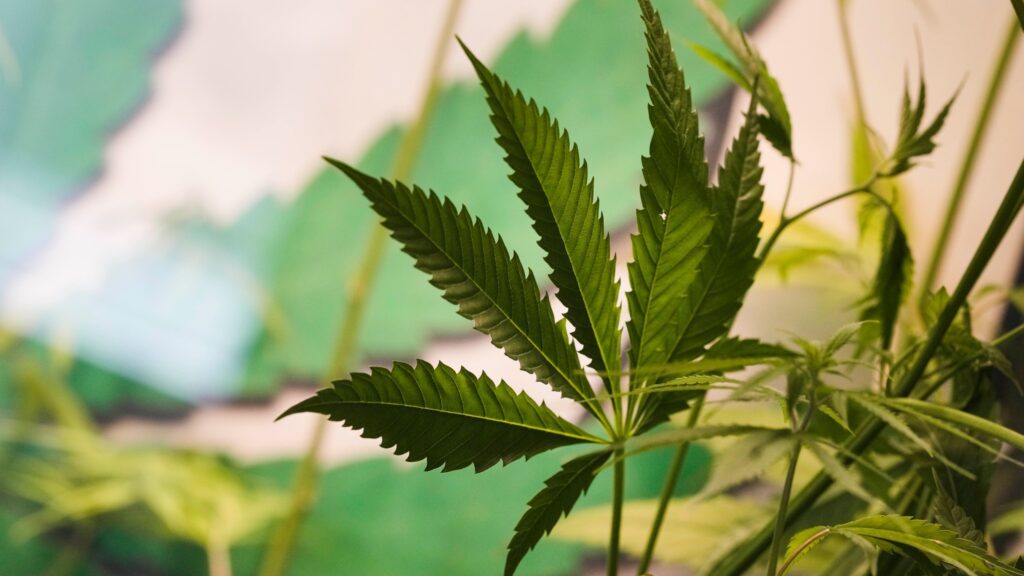
The Connecticut attorney general has asked Congress to reconsider the law that made hemp legal, which advocates and state lawmakers say could upend both the legislature’s plans for THC seltzers and Connecticut’s hemp and CBD industry.
A March 20 letter to federal legislators signed by state Attorney General William Tong along with 18 other attorneys general said the good intentions of the 2018 federal farm bill have been overshadowed by illegal, unregulated cannabis products sold across the country on the gray market.
“The promise of the 2018 Farm Bill to create this agricultural commodity market, however, has failed,” the letter says. “Instead, hemp-derived intoxicants have proliferated across our states, posing a significant threat to public health and safety, and benefiting unregulated, untaxed, and unaccountable market actors.”
Becky Goetsch, a hemp farmer and president of the Connecticut Hemp Industry Association, said Tong is “naive if he doesn’t think that those words are straight up aggressive toward the farming industry.”
“There are all the existing hemp farmers who operate with integrity and create hemp derived products that are non-intoxicating,” she said. “It is an agricultural commodity and the agricultural people are creating good, decent, non-intoxicating products.”
Tong spokesperson Elizabeth Benton said, “The purpose of our bipartisan, multi-state letter was to urge Congress to clarify any residual confusion regarding hemp intoxicants and state regulations.”
“We continue to see bad actors exploit confusion created by the 2018 Farm Bill hemp definition, including the sale of illegal high-THC products made to look like candy and snack foods attractive to kids,” she said. “The purpose of our bipartisan, multi-state letter was to urge Congress to clarify any residual confusion regarding hemp intoxicants and state regulations.”
Tong’s office last year began raiding smoke shops and gas stations, seizing products he said are designed to mimic popular brands, but instead contain high amounts of THC, the compound in cannabis that gets you high.
“This law has unleashed on our states a flood of products that are nothing less than a more potent form of cannabis, often in candy form that is made attractive to youth and children — with staggering levels of potency, no regulation, no oversight and a limited capability for our offices to rein them in,” the letter says.
Meanwhile, state legislators have been attempting to curb the sale of illicit THC products while carving out an exception for THC-infused seltzers, so that they may continue to be sold in Connecticut package stores.
State Rep. Mike D’Agostino, D-Hamden, co-chairman of the legislature’s general law committee, said, “if I had my druthers,” all cannabis products would be sold in licensed and regulated dispensaries: “Once you start allowing the sale outside of the dispensaries and regulated structure, eventually you’re going to lose control of the marketplace.”
Though he knows creating an exception for THC seltzers to be sold in package stores would make cannabis “harder and harder for us to regulate,” D’Agostino said, “If that’s what people want, I mean, it is a legal product. Then so be it.”
That exception would allow THC seltzers — alone among cannabis products in Connecticut — to be grown, processed, tested and manufactured out of state.
If, however, the federal legislators “reverse course” at the request of attorneys general, “then we could say definitively, ‘OK, if we’re going to allow these products, they can only be made in Connecticut,’” D’Agostino said.
The 2018 Farm Bill, which legalized hemp and hemp-derived products containing less than 0.3 percent THC by dry weight, was due to be reauthorized last year. That reauthorization never happened, and the letter to congressional leaders was sent in the hopes that the bill is reconsidered before Congress puts its stamp on the bill for another five years.
“Because of the ambiguity created by the 2018 Farm Bill, a massive gray market worth an estimated $28 billion has exploded, forcing cannabis-equivalent products into our economies regardless of states’ intentions to legalize cannabis use, and dangerously undermining regulations and consumer protections in states where adult-use legal cannabis programs are already in place,” the letter says.
“On our end, it’s hard to run a business when the rules and laws are changing every year — so we’d welcome some federal guidance — we just can’t depend on it and won’t be holding our breath,” said Jeff Wentzel, a member of CHIA and a manager at U.S. HempCare. “We’d probably question the issue being called a ‘crisis’ — fentanyl overdoses and opioid abuse is a crisis. We’ve been seeking federal guidance and regulation for years.”
Though both Wentzel and D’Agostino said they agreed with Tong’s sentiment and that they’d welcome federal clarification on the issue, Wentzel does not believe tightening restrictions is the answer.
“Prohibition is hard to do. The current problem with hemp-derived products wouldn’t exist without prior prohibition,” he said. “I don’t think we can prohibition our way out of it. The only way to get rid of these products is to have a healthy, local, compliant product to compete with it.”
H/T: CTInsider
Read the whole article by clicking here.


